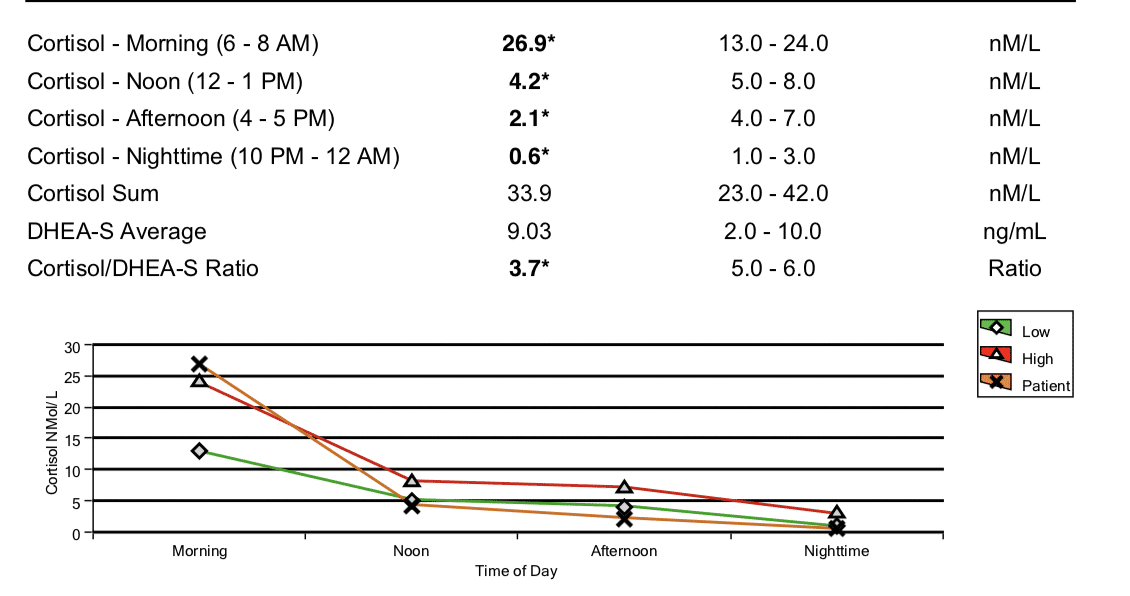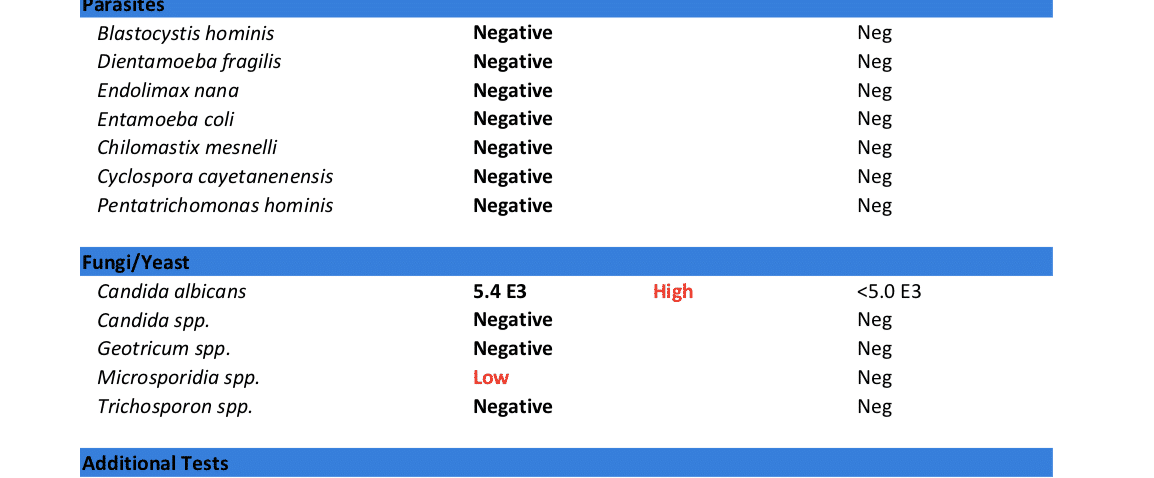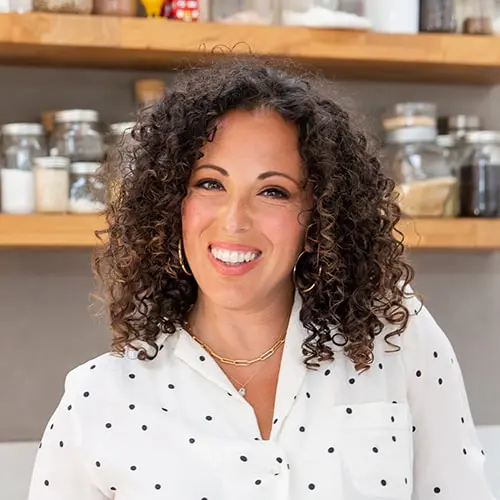It is estimated that up to 50% of adults in the US are affected by insomnia, with up to 60 million having chronic sleep trouble. Twenty percent of Americans report that they did not wake up feeling refreshed on any of the past seven days. These numbers are staggering, when you think about the incredible number of studies proving that adequate, good quality sleep is essential for disease prevention, mood, and brain function.
I went through a time in my 20’s where I simply couldn’t fall asleep. For hours, I would lay awake, tossing and turning, getting angry and frustrated at my increasing alertness. After a while frustration would turn to worry….. “how am I going to function tomorrow….I need to be up at 7 to make it to work/class/etc”, “Am I ever going to be able to fall asleep naturally again in my life?”
I seriously believed that I had forgotten how to do something that I had taken for granted my entire life up until that point. To just. Go. The. F. To. Sleep.
Sleep Matters
When my clients mention that their sleep is less than optimal, I take it seriously. No matter what the main health issue is, if you aren’t sleeping well, the body and mind just can’t repair fully. Lack of sleep makes us inflamed, stressed, shifts our hormones for the worse, and impairs blood sugar balance. Our levels of patience, concentration, and creativity suffer. That word or name we are grasping for remains elusive as we struggle to communicate our thoughts.
Studies show that we tend to make poor food choices the next day. Poor sleep can even lead to weight gain, without a change in diet. Difficulty falling asleep, or staying asleep, inevitably leads to being less than fully awake and refreshed during the daylight hours— for years; I felt like I was half of myself. And that’s no way to live.
Finding My Root Causes
Resolving my insomnia required a pleiotropic (multi-faceted) approach. Testing and supporting my adrenal hormones was the first step:

(This is a saliva panel from before I used the DUTCH Adrenal test for assessing the HPA axis in my practice. You can see that my morning cortisol was super high right when I woke up, suggesting that it had been high at night.)
However, it turned out that I also had three parasites and candida overgrowth causing inflammation, which had to be addressed before my adrenal hormones and bio-rhythms could repair. (And this was despite not having many digestive symptoms at the time!)
Test 1

Test 2

Test 3

The inflammatory compounds from parasites and yeast in my gut, were neurotoxins. Exposure to these in my bloodstream was creating inflammation and oxidative stress in my brain that contributed to sleep and memory problems.

And my progesterone levels were lower than my post-menopausal grandmother’s would have been! (Progesterone production takes a back seat to cortisol production when your body is reading that you are under constant stress… *or inflammation).
To make things worse, my estrogen was through the roof. This relative excess of estrogen to progesterone is called Estrogen Dominance , and can make life in a woman’s body fell like…well…a pain in the ass! (Think PMS, breast swelling and tenderness, heavy menstrual bleeding, fibroids and cysts, or weight gain around the hips and thighs….oh, and did I mention insomnia?)

Addressing each of these issues, over a period of about a year, gradually brought about a shift in my insomnia. Even after the first month of treatment, sleep started to come easier and easier. And it just got better and better from there. I felt like I had gotten my life and myself back!
5 Steps to better sleep
Modern life, with our artificial lights, tablets and screens, digital notifications, and indoor living give our bodies the exact opposite of the signals we need to promote sleep. While testing and treating these or other underlying causes for any case of insomnia may be necessary in the long run, we just can’t “out-supplement” diet and lifestyle.
Taking steps to set yourself up for success during the day, and early evening, is essential for anyone who’s sleep is less than optimal. There are many things you can do on your own, to give your body and mind every chance of sinking into a deep, restful sleep, naturally.
Sleep Tips
Sleep is one of the most important aspects of improving hormone balance and repairing body systems, from the brain to the digestive tract. Here are additional tips to facilitate this process:
Tip 1: Train the brain to feel sleepy & awake at regular times:
- Set fixed times for bedtime and rise-and-shine– As much as possible, keep to this schedule, even on weekends, regardless of how much sleep you got the night before.
- Avoid daytime naps- as this reduces your sleep drive at night.
- Keep the lights off –If you have to get up during night to use the bathroom do not turn on the light. Use a small nightlight so that you can see enough to move safely.
- Sunlight Exposure- get at least 30 minutes per day, sunglass free. Even in a cloudy sky, the natural spectrum light is bright enough to trigger your brain with a powerful signal that it is daytime. Natural light exposure helps establish healthy sleep/wake hormonal rhythms—it has only been recently that we’ve spent the majority of our lives indoors, under artificial lights. It’s essential to do this in the morning, within the first hour of being awake. For any kind of insomnia, it’s best to wake and go to bed at the same time every day. However, if you wake at 7 AM most days, but 9 on weekend, set your daily time outside to be 9:15-9:45 to ensure consistency, grab a mug of tea, and head out the door.
Tip 2: Develop a strong mental association between your bedroom & sleep:
- Use the bedroom only for sleep (or sex)- don’t read or watch TV in bed.
- Get into bed only when you are sleepy– If you are unable to fall asleep, get up and go into another dimly lit room, rather than lying in bed awake.
Tip 3: Avoid being over-stimulated at bedtime:
- Avoid Alcohol – it may help you fall asleep, but all the sugar in the alcohol will cause a rapid rise and subsequent drop in your blood sugar which will cause you to wake up. Even low-sugar alcohols like vodka can disrupt your sleep pattern, causing lighter sleep or frequent waking. Avoid alcohol within 3 hours of bedtime, and avoid it completely if you are struggling with insomnia.
- Ditch the Caffeine- Did you know that even a morning cup of joe at 7 AM can disrupt your sleep? This is especially true in people who have genetic caffeine processing issues, due to gene SNPs such as COMT. The “caffeine kick-back effect” is more common than you would think! Avoid caffeine completely if you are having sleep problems. Avoid it after 2 PM as a general rule, even if you don’t suspect you are overly sensitive to its effects.
- Slow Mental activity -stop doing active mental work at least 1 hour prior to bedtime. This includes surfing the web, watching Netflix or movies, emailing, Facebooking, or texting. We all need wind-down activities to switch out of “doing” and “problem solving” mode. Earlier in the evening, meditation, yoga, books, audiobooks, and yes, at the very least, even watching a TV show or playing a game on your Ipad is fine (assuming you are using precautions to avoid blue-light listed below)—anything that helps you switch into relaxation mode and away from the whir of thoughts and pace associated with wakefulness.
- Get Moving!- Exercise at least 30-60 minutes every day. Even walking works.
- Avoid Blue light Exposure— Have you ever noticed that the light near the end of the day, around sunset, is naturally warmer with more reds and pinks? Blue light from screens inhibits melatonin production by signaling that it is day time. Our brains respond to dimmer light and warmer light by winding down activity, but you need at least 2 or more hours of these lighting conditions prior to bedtime for optimal relaxation.
- Install apps on electronic devices that dim blue light and use warmer spectrum tones, such as f.lux on Mac, Nightshift for iPhones, or Twilight on Android.
- Dial down the brightness on dimmer lights, screens, and digital devices.
- These apps do a fairly good job, but if you are more sensitive to light and the apps don’t cut it, also consider buying a pair of blue-blocking glasses (around $10-15—-yep, these come in a ton of super-groovy styles now that they’ve caught on). Some people even install amber-colored light bulbs such as these around the house.
Tip 4: Create an environment supportive to sleep.
Your room should be:
- Dark- cover LED lights on bedside clocks, consider blackout blinds. An eye-mask with cup shaped or curved nose pieces can work just as well.
- Cool- Your body naturally cools off when you sleep, and if your room is too hot, it can be hard for your body to give off its heat. Around -65°F is ideal for most people.
- Comfortable- use a comfortable mattress and pillow that is supportive to your neck, depending on your sleeping position. Consider using a “side sleeper” pillow for under your neck when sleeping on your side. Consider using a body pillow to hug and put between your knees to align your back and shoulders at night. I personally love the PharMeDoc C-shaped body pillow for side sleeping as it supports both neck and hips. Yes, it is marketed for pregnancy (and is a must have for pregnant women!)—but it’s great for non-pregnant people who like to sleep comfortably too!
- Quiet –Some people swear by reusable silicone earplugs like these for the best noise cancellation. I prefer the super soft foam kind so they aren’t uncomfortable. You can use them several times before they lose their “squish” and look a little grubby—then toss ‘em and grab a new pair. These plugs block out even my husband’s snoring on the loudest night!
- You can also use a white noise machine, if you don’t like the feeling of having something in your ears. Different people prefer different sounds. I don’t use one of these, but patients have told me good things about them.
Tip 5: Eating for healthy sleep
- Stop Munching- avoid being too full at bedtime. No food for at least three hours before sleep, unless you suffer from severe hypoglycemic issues.
- Don’t Under-eat: Hunger and low blood glucose can give you insomnia and can wake you up in the middle of the night. Most people’s bodies naturally help them to eat the right amount, but if you’ve been intentionally trying to lose weight, or restricted eating because of digestive or other health issues, your appetite signaling can easily get off, and so can your sense of what is enough food. If you’re not sure that you’re eating enough try this:
- Use an online calculator like this one to figure out your approximate caloric need.
- Use a food tracking app such as MyFitnessPal to keep track of your calories for a few days.
- If you’re under-eating, bumping up your calories may be the silver bullet solution to help you sleep deeper and fall asleep easier.
- Eat high nutrient foods, especially minerals: Mineral deficiencies (like calcium, magnesium or potassium) are a common factor with insomnia. The best way to ensure high nutrient content is to eat a variety foods each week, including fruits, lots of above ground veggies, root veggies and tubers of different colors, animal proteins, liver or other organ meat, seafood, and bone broth. If you don’t eat dairy be sure to get plenty of calcium containing leafy greens, and or herbs that are high in calcium to supplements, Many people need supplemental magnesium as well. Even on an otherwise healthy, whole foods, Paleo type diet, you can still have deficiencies of essential nutrients if you are eating the same foods day in and day out.
- Eat enough carbs: Carbs are super important for sleep, in several ways.
- You need dietary carbohydrate in order to produce melatonin in your brain. Melatonin counters cortisol, among other things. Without enough melatonin in your brain, sleep isn’t happening!
- People with Adrenal Fatigue may have insufficient cortisol levels to stabilize their blood sugar for long periods of time. I notice that people with low cortisol often suffer on low carbohydrate diets, because their body can’t shift into carb generation mode in the liver (which is where your body sources stored carbs between meals). When your blood sugar drops while you’re sleeping, adrenaline kicks in and you wake up out of a dead sleep, wondering what is going on. To avoid this, consume more of your carbs at your evening meal, close to bed time.
- Each person’s carbohydrate need varies widely based on activity level and baseline metabolic rate. It can also differ at different phases in life. Depending on age, gender, activity level, pregnancy status, and weight maintenance goals, people need anywhere from 50-350 grams daily. With sleep difficulty, I recommend that my clients not go below 75 grams daily. The only way to know what is right for you is to experiment and observe.
- Again, take activity level into consideration —if you are training for a triathalon, 50 grams per day is simply not going to cut it. If exercise looks like a walk to the mailbox daily, you aren’t going to need above 150 grams. Adjust these levels until you find the right fit for you.
Tip 6: Develop An evening ritual helps prepare your body/mind for sleep.
Here are some possibilities to choose from:
- Journal– If you are someone who lays awake thinking of your to do list, get it all out on paper before-hand. Planning for the next day by writing a brief list can help short-circuit the mental spinning. Alternately, write down what you are grateful for that day, or journal. Consciously release and hurts or resentments you are feeling.
- Have a cup of herbal tea (e.g. “Sleepy Time”)
- Have a bath with Epsom salts—start with 1 cup in a warm (but not overly hot) bath. Add relaxing essential oils like lavender, chamomile, sandalwood, or vetiver if you enjoy these.
- Use a diffuser in your bedroom & use lavender essential oil before bed.
- Do some gentle stretching, or yoga. I personally love using my foam roller to roll out kinks and knots.
- Try progressive muscle relaxation–this has been shown to help reset cortisol rhythm. There are many version of this available on Youtube, such as this one.
- Do “4-7-8” breathing:
- Breathe in through nose for 4 counts
- Hold your breath for 7 counts
- Exhale through mouth for 8 counts
- This combination of count ratio slows heart rate and relaxes the sympathetic nervous system.
Do the same ritual every night, as you are training your body and mind to unwind from the day and giving it the message that it’s time for sleep.
Tip 7: Supplement Support:
Ideally, supplements should only be used after the above steps are being taken consistently. But tossing and turning night after night can really put a damper on your mood, not to mention your glucose control, sugar cravings, weight, hormone balance, and overall health. There is no one sleep supplement that works for everyone, and these are just several recommendations that are generally safe for people to experiment with on their own.
If you are still struggling, work with your practitioner to identify key issues that are at play with your insomnia, such as hormone imbalances, parasites, inflammation, neurotransmitter issues, toxicity, sleep apnea, or other causes.
Consider:
- L-Theanine– 200-400 mg
- Magnesium- up to 1200 mg, in divided doses daily. Use the chelated forms for best tolerance.
- Liposomal CBD– 1ml-4ml before bed.
- Calming Herbs – Lemon balm, Passion flower, Valerian root (like this blend)
Looking for further help with improving your sleep? We’d love to help you!
At the Reverse-Age Method, we believe in a holistic approach to perimenopause and beyond, that addresses the root causes of your symptoms (like insomnia, hot flashes, night sweats, erratic periods, fatigue, skin aging, weight gain, and brain fog)– to also slow the pace that your cells are aging. Whether it’s improving gut health, optimizing detox function, enhancing mitochondrial function, or building muscle mass, our comprehensive program has got you covered.
If you’re new here, be sure to check out our Blog Page for more insights and tips on how to thrive during perimenopause. Our blog is packed with practical advice, success stories, and the latest research to help you on your journey.
For more updates and community support, follow us on social media:
You May Also Like...
Will Using Hormone Replacement Therapy Help Me Lose Weight?
Hormone Replacement Therapy (HRT) is often the first line of defense women consider when they experience the upheaval…
I Had To Take Antibiotics…How Can I Protect My Gut?
Many of my patients are surprised to hear that I, too, grew up with the ubiquitous bottle of pink bubblegum flavored…
Whether you’re looking for help with your gut, your hormones, or both, our team of practitioners work together to treat the WHOLE you – guiding you to a healthier mind, body, and spirit day by day.



